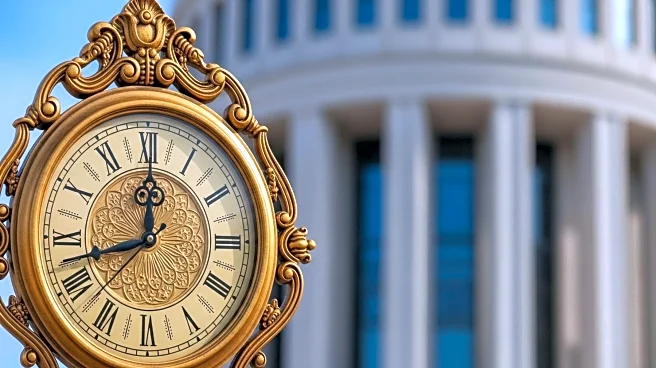What's Happening?
The U.S. Court of Appeals for the Second Circuit has issued a ruling in the case of Buller v. Commissioner of Internal Revenue, addressing a significant aspect of tax procedure. The court reversed a previous decision regarding the 90-day deadline for filing a petition in the United States Tax Court under Section 6213(a) of the Internal Revenue Code. The ruling determined that this deadline is not jurisdictional, meaning it can be subject to equitable tolling. This decision alters the understanding of deadlines in tax court filings, potentially allowing taxpayers more flexibility in meeting filing requirements.
Why It's Important?
This ruling by the Second Circuit is crucial for taxpayers and legal professionals dealing with tax disputes. By establishing that the 90-day deadline is not jurisdictional, the court opens the possibility for equitable tolling, which can provide relief to taxpayers who miss the deadline due to circumstances beyond their control. This decision could lead to increased litigation as taxpayers seek to challenge missed deadlines, potentially affecting the workload of tax courts and the strategies of tax attorneys. It also underscores the importance of understanding procedural rules in tax law, which can have significant implications for tax liability and compliance.
What's Next?
Following this decision, taxpayers and legal professionals may need to reassess their approach to filing petitions in tax court. The ruling could prompt further legal challenges as taxpayers test the limits of equitable tolling in tax cases. Additionally, the Internal Revenue Service and tax courts may need to adjust their procedures to accommodate this new interpretation of the filing deadline. Legal experts will likely monitor subsequent cases to see how this ruling is applied and whether it leads to broader changes in tax court practices.








